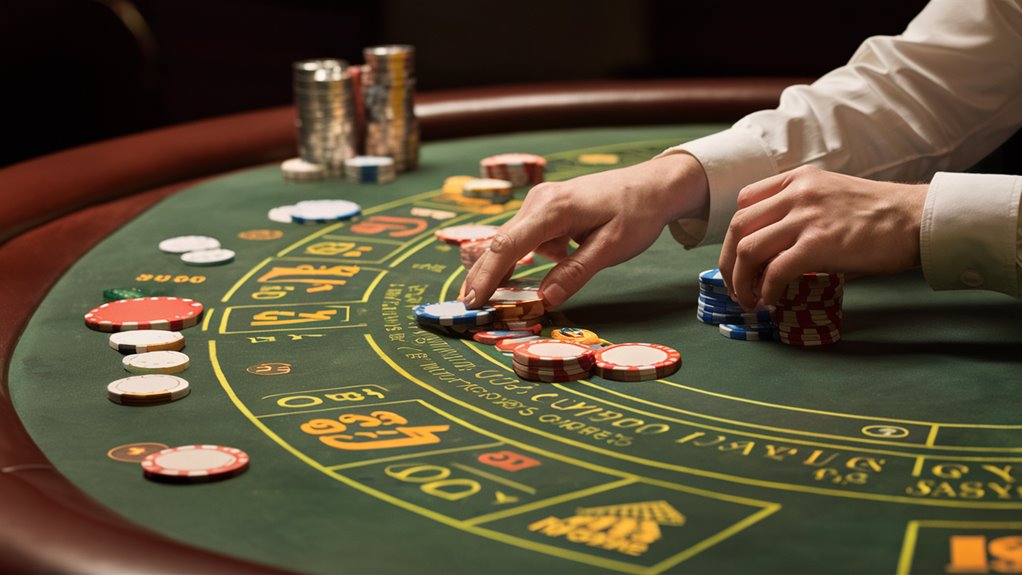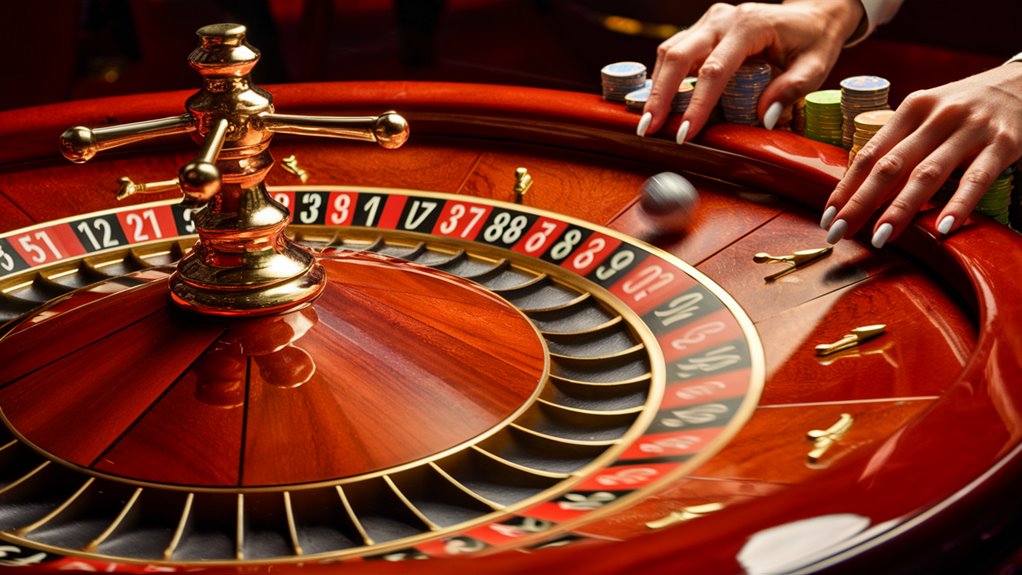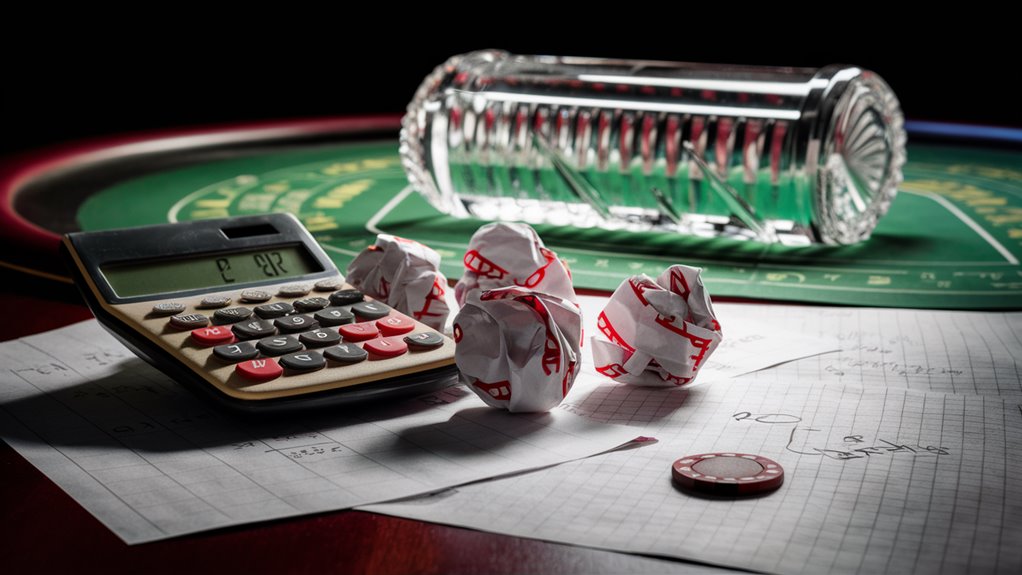Big Mistakes in Baccarat: Tips to Dodge Common Errors
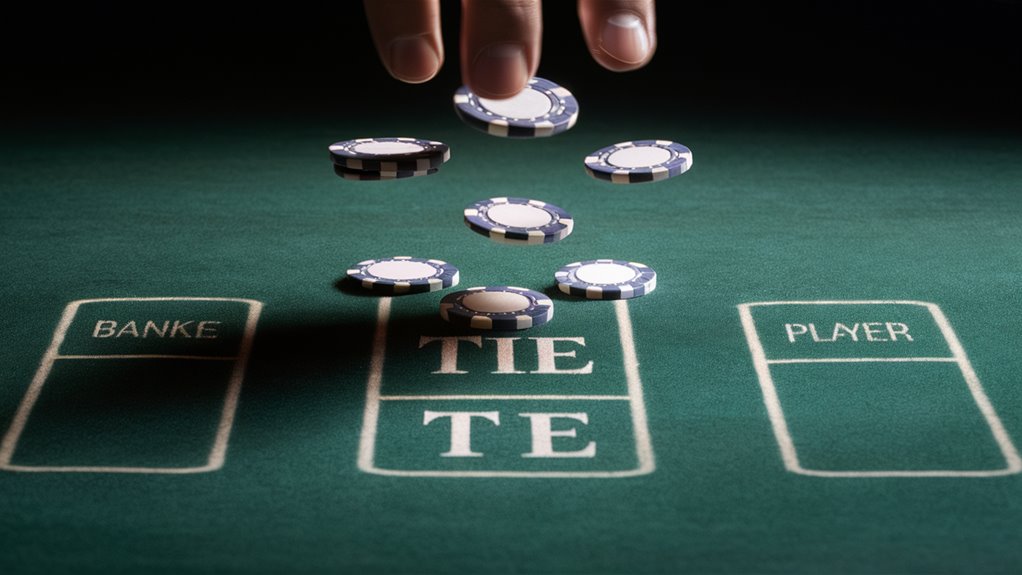
After looking at thousands of baccarat hands, six big mistakes show up that can wipe out your cash. Know these big errors to better your game and keep your money safe.
1. Chasing Losses: The Cash Killer
Going after losses after bad hands is the top costly error, leading to big losses of $1,334 per 100 hands. This reaction to losing often makes players bet more and lose faster.
2. Bad Money Handling
Betting over 1-2% max per hand ups risk a lot. Pro players keep tight control of their cash, knowing that good money handling is key to last long. 온카스터디 인증리스트 추천
3. Betting Too Much on Ties
The tie bet has a 14.4% house edge, making it a bad bet in casino games. Even with high pay of 8:1 or 9:1, the math against it makes this bet cost too much over time.
4. Trusting Progressive Betting
No betting plan can beat the built-in house edge of 1.06-1.24%. Progress plans often speed up losses instead of making steady money.
5. Not Watching Table Limits
Not seeing minimum and maximum bet limits can put players in bad spots. Smart players pick tables that fit their money size and betting plan.
6. Not Minding Banker Commission
The 5% fee on winning banker bets eats into returns a lot. Players must count this fee in their bets and money tracks to keep track of wins/losses right.
Knowing these basic math truths sets apart good baccarat players from losing ones. Avoiding these errors while using good plans builds the base for winning.
Chasing Past Hand Results
Getting the Truth on Baccarat Patterns and Past Hands
The Real Deal on Pattern Tracking in Baccarat
Following patterns and past hand results is a big misunderstood part of Baccarat plans.
Many fall into the gambler’s fallacy thinking they can guess future results from past hands.
Math Facts vs Common Wrong Beliefs
The true math of Baccarat shows set house edges that don’t change, no matter past hands:
- Banker bet: 1.06% house edge
- Player bet: 1.24% house edge
- Tie bet: 14.4% house edge
Each Hand is Its Own Event
Every Baccarat hand stands alone with set chances:
- Banker winning chance: 45.86%
- Player winning chance: 44.62%
These chances stay the same, no matter what happened before. A run of eight Banker wins doesn’t change the next hand’s odds.
What Doesn’t Work: Pattern Systems and Scoreboards
Scoreboards and bet systems based on old results don’t help in Baccarat:
- Pattern watching doesn’t change set chances
- Bet plans can’t beat the house edge
- “Hot” and “cold” runs don’t predict anything
Best Baccarat Plan
The best way to play Baccarat is to understand these key points:
- Chances drop at random
- Math chances are fixed
- Each hand is independent
- House edge is always there
Smart betting should only rely on these truths, not on guessed patterns or past hands.
Bad Money Handling
Getting Good at Money Handling in Baccarat: Key Plans
Setting Smart Money Limits
Poor money handling is a top error in Baccarat, often leading to huge unplanned losses.
Stats show players should keep bets within 1-2% of their total money, yet many risk 20% or more on single bets, breaking basic money rules.
Using Smart Controls
Setting firm loss stops and win goals sets important gambling borders.
With a $1,000 start, set a $200 loss stop and a $300 win goal. Hitting these marks should end play immediately – this firm rule keeps your gambling cash safe and ensures you bet with discipline.
Pro Money Handling Ways
Smart money handling needs careful bet tracking and full session records.
The bet unit system, where each unit is 1% of all money, stops rash choices in bad times.
Pro players see their money as business funds, staying away from borrowed money or credit when gambling cash runs low. This planned way helps them last longer and cuts risk in Baccarat plans.
Key Money Rules:
- Keep strict 1-2% bet limits per try
- Track all gambling times
- Never chase losses with borrowed cash
- See your money as an investment
- Stop right away when you hit loss/win marks
Betting Tie Too Often
The Risky Move of Tie Betting in Baccarat: Look and Plan
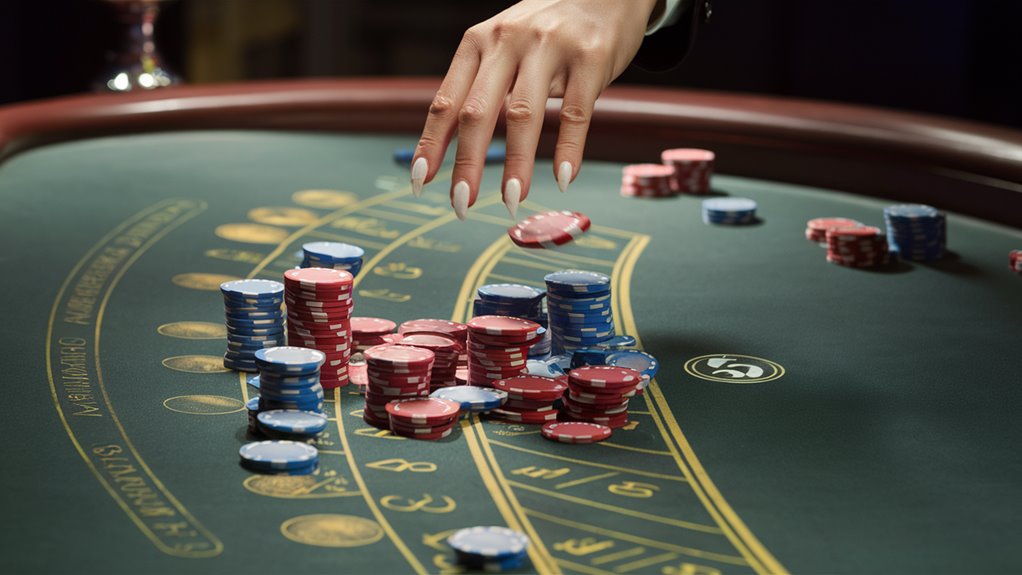
Knowing Tie Bet Math
The hope of 8:1 or 9:1 payouts on tie bets hides a costly math fact.
With a huge house edge between 14.4% and 14.8%, tie bets are some of the worst bets in casino games.
The real chance of a tie sits at 9.6%, yet most places offer payouts that don’t match this chance.
Comparing Bet Types in Baccarat
The clear difference in betting options shows when you look at the numbers:
- Banker bet: 1.06% house edge
- Player bet: 1.24% house edge
- Tie bet: 14.4% to 14.8% house edge
The Cost of Tie Betting
Think about the big money impact on a $100 bet:
- Tie bet loss: $14.40 per hand
- Banker bet loss: $1.06 per hand
- Possible loss gap: $1,334 over 100 hands
Best Baccarat Plan
Stats from thousands of hands prove that what looks like tie clustering is just by chance.
The best plan sticks only to banker and player bets, dodging the tempting but bad math tie choice.
This plan helps you make money in the long run and cuts down on high house edges.
Using Gambling Plans Without Thought
Getting the Facts on Gambling Plans in Baccarat
The Empty Promise of Betting Plans
Betting systems like Martingale, Fibonacci, and D’Alembert pull in new baccarat players with hopes of sure wins.
Yet, these plans can’t beat the basic house edge of 1.06% on banker bets and 1.24% on player bets.
Common Betting Plans and Their Issues
The Martingale System
The Martingale betting plan asks for doubling bets after each loss to get back former losses. This plan fails due to:
- Table bet limits
- Limited money limits
- Long losing runs
- Fast bet growth
The Fibonacci System
The Fibonacci bet way involves adding the last two bet amounts after losses. This plan’s big problems include:
- Math limits
- Fast money loss
- Can’t beat house edge
- Need for bigger bets
The True Math of Baccarat
Stats work in baccarat shows that each round is an independent event. Important points are:
- No link between hands
- Set house edge no matter bet plans
- Can’t guess future results
- Random number spread
Smart Money Handling
Planned money handling brings more sure results than bet plans:
- Keep same bet sizes
- Know the expected loss nature
- Set firm loss stops
- Play with care and plan
Playing Without Knowing Table Limits
Playing Without Knowing Table Limits: Must-Know Info
Getting the Facts on Betting Limits
Table limits are key to baccarat play, shaping bet plans and needed money handling.
Those who miss these key limits often face huge losses and bad play.
Must-Check Limits
Three key limits to check before starting play:
- Table minimum bet needs
- Top betting limits
- Specific Tie bet rules
For careful play, keep a starting money of 40-50 times the table minimum.
At $25 minimum tables, players should have $1,000-$1,250 ready.
What Top Bets Mean
Table top bets really affect:
- Using progress bet plans
- Getting back losses
- Flexible betting choices
High-stakes tables often have different limit setups for:
- Banker bets
- Player bets
- Tie bets
Plan Your Play Carefully
Before you start, make sure table tops fit your bet plan steps.
Check all limits by:
- Looking at posted limit signs
- Asking the dealer straight
- Going over house rules
This prep stops plan blocks and helps keep smart money handling all game long.
Not Caring About Banker Bet Fees
Getting What Banker Bet Fees Mean
The Big Effect of 5% Fee
The 5% fee on winning Banker bets shapes baccarat’s house edge and how casinos make money.
This key part often gets missed by players, leading to wrong guesses on returns and money plans.
The Numbers Broken Down
Banker bet chances:
- Win rate: 45.86% of hands
- Loss rate: 44.62% of hands Sites for Beginners
- Tie rate: 9.52% of hands
While the Banker bet has a higher win chance than Player bets, the 5% fee on wins evens the odds.
This fee turns a player edge into a 1.06% house edge on Banker bets, against the 1.24% house edge on Player bets.
Watching Fees and Money
Right fee tracking is key for correct result keeping.
A $100 winning Banker bet brings a $5 fee cost, no matter other bet outcomes.
Not counting these fees in money sums makes big keeping errors that change overall game display and money checking.
Watching these fees in each game round is core to good baccarat play.
